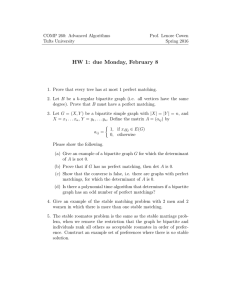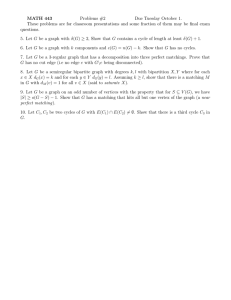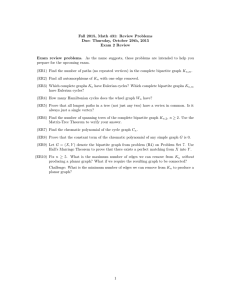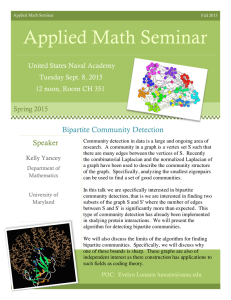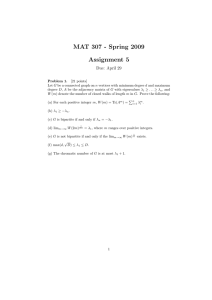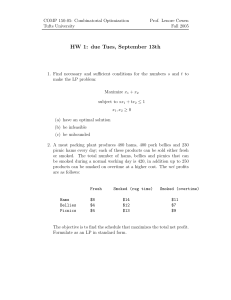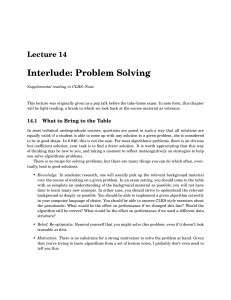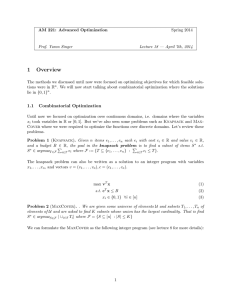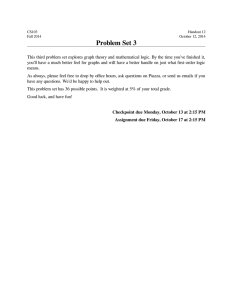HW 1: due Thurs, Jan 27
advertisement
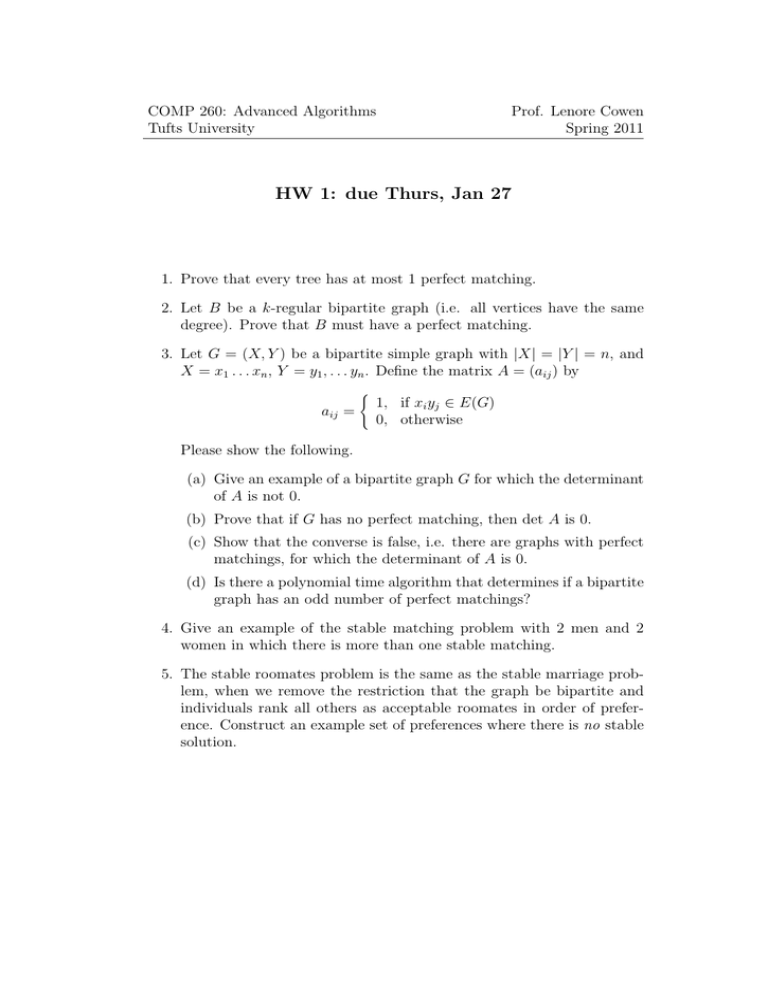
COMP 260: Advanced Algorithms Tufts University Prof. Lenore Cowen Spring 2011 HW 1: due Thurs, Jan 27 1. Prove that every tree has at most 1 perfect matching. 2. Let B be a k-regular bipartite graph (i.e. all vertices have the same degree). Prove that B must have a perfect matching. 3. Let G = (X, Y ) be a bipartite simple graph with |X| = |Y | = n, and X = x1 . . . xn , Y = y1 , . . . yn . Define the matrix A = (aij ) by ( aij = 1, if xi yj ∈ E(G) 0, otherwise Please show the following. (a) Give an example of a bipartite graph G for which the determinant of A is not 0. (b) Prove that if G has no perfect matching, then det A is 0. (c) Show that the converse is false, i.e. there are graphs with perfect matchings, for which the determinant of A is 0. (d) Is there a polynomial time algorithm that determines if a bipartite graph has an odd number of perfect matchings? 4. Give an example of the stable matching problem with 2 men and 2 women in which there is more than one stable matching. 5. The stable roomates problem is the same as the stable marriage problem, when we remove the restriction that the graph be bipartite and individuals rank all others as acceptable roomates in order of preference. Construct an example set of preferences where there is no stable solution.
